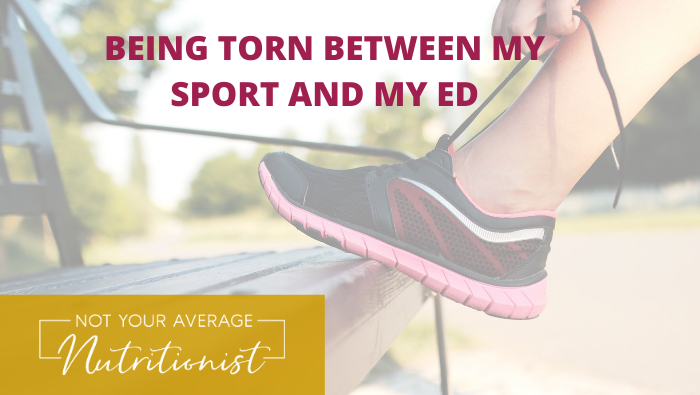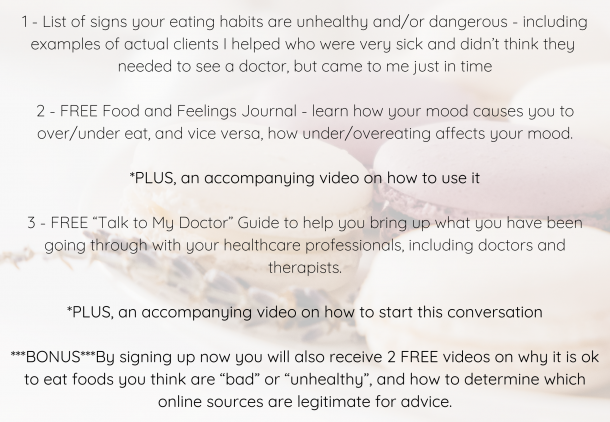By Jessica Cushing-Murray
Jessica Cushing-Murray is a graduate student at University of Hawaii Manoa pursuing a Master’s degree in Nutrition. She was a member of the UCLA Cross Country and Track teams during her undergraduate career and is using her last season of eligibility as a grad student now on Oahu. As a competitive long distance runner, Jessica understands the difficulties of trying to balance proper nutrition with college athletics, and hopes that she can make a career out of educating and counseling student-athletes as her future career.
Picture this: you’re a NCAA Division I student-athlete who spends over 25 hours a week at practice… and you’re struggling with an eating disorder (ED). You have practice every morning at 7am, and you run anywhere from 4-14 miles… you eat as little as possible afterward. You go to class and then back to your second practice of the day and run some more… and you think about what food will be most beneficial to eat so that your legs don’t get too shaky during weight room. Then you finally go to dinner at the dining hall… and you spend all your time online looking up the nutrition information for every item at the buffet. You repeat that day for weeks or even months, and ask yourself why you never have time for other things and why you’re so tired and unhappy.
That was my life in college. A horrible cycle of falling in and out of that pattern for years. I spent a long, long time being torn in half by my sport and my eating disorder.
At the time, the cycle felt impossible to break.
Gradually, I learned how to be happy again. Once I started seeing a psychologist, I was able to get help and express the pain I’d been feeling. Slowly but surely, I saw the return of the “old” me. It didn’t happen overnight, in a week, or even a month. It’s still ongoing, but I began noticing the smallest things as victories. My college coach used to preach, “it’s the little things that make big things happen.”

So I got tools from a psychologist and my support from friends and family, and I started to mend everything on the inside—piece by piece—that had felt broken for so long. At first, a victory was something as minimal as “I ate a full breakfast with my team after practice,” or “my hands didn’t shake at all during weight room today.” But they build on each other. Small accomplishments like that transition into “I didn’t look at a single nutrition facts label all week,” to “I don’t know how much I weigh because I stopped using my scale.” It was all about knowing that there was a win in each of these steps. The greatest feeling in recovery came when I finally reached all these steps and I was no longer just checking things off a list that the dietitian gave me, but I was actually OKAY with taking these steps—both on an emotional and mental level.
Then came one of the most momentous steps in my own personal recovery. I was able to go for a run and not think about the calories I was burning according to pace and mileage. I wasn’t basing my run on which foods I had eaten that day, the calories would be “canceling out.” I was just running—for fun, for me. With lots of time spent working on my recovery process, and myself, I was able to mend the horribly fractured chain that linked me to my ED on one side and my sport on the other.
Since that day and the moment I realized what an accomplishment that run was, things haven’t always been perfect or smooth. Anyone who has been through a similar relationship with food knows that recovery is a messy, ongoing battle. Some days or weeks I’m lured back into calorie counting and I think a little too often about food and its ingredients/labels. Other weeks I’m pulled in the opposite direction by running and I waste energy trying to make the perfect workout schedule and do everything according to pace. BUT, I know exactly what to do or who to reach out to when either of these things happen, and I find ways to re-center myself. It doesn’t have to be one or the other, and I don’t have to be stuck in the middle of two equally difficult problems. Both my sport and my ED will always be a central part of making me into the person I am today, but I am no longer being torn apart by either. I’m in control of how I spend my time, what I think about, and what deserves my attention—on any given day.
And, wow, regaining control over my life feels so damn good.


